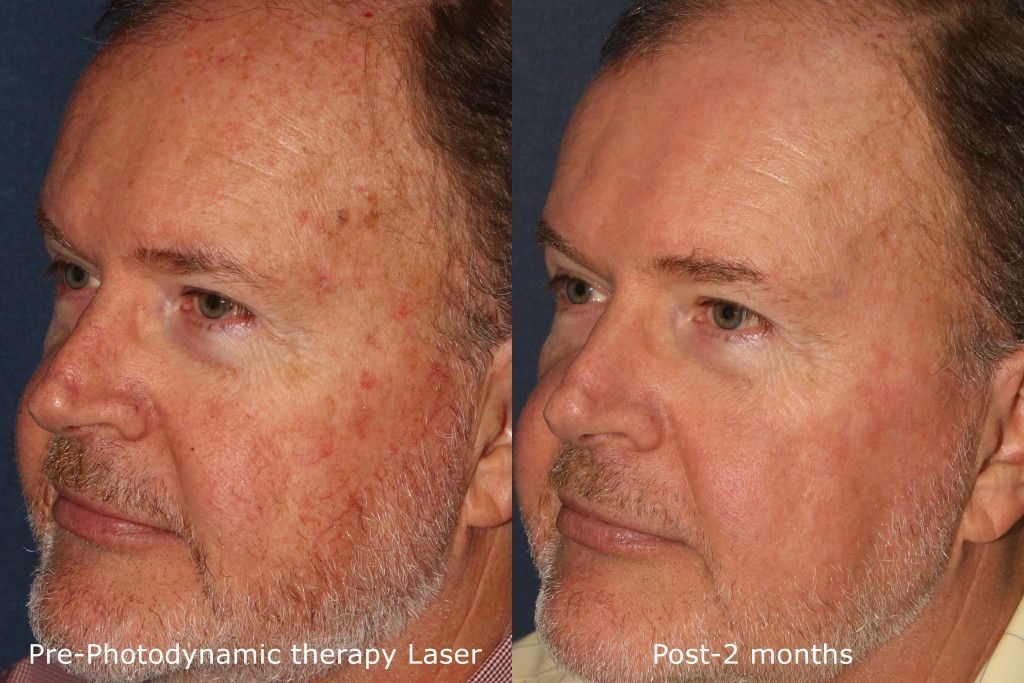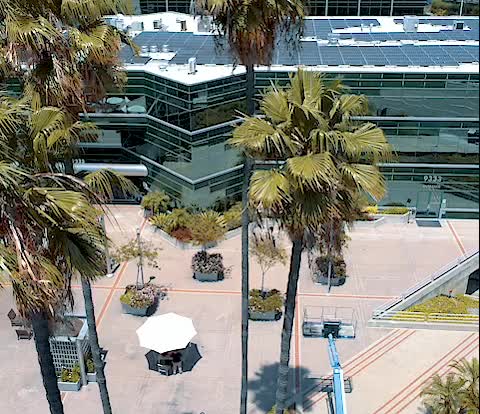Skin Cancer Overview

Cosmetic Laser Dermatology is proud to announce that not only have we joined with West Dermatology, one of the country’s premier medical dermatology networks, but we have a facility, located just across the hall at our San Diego location, called the West Dermatology & Skin Cancer Center, that’s dedicated exclusively to the treatment of skin cancer.
At the West Dermatology & Skin Cancer Center, we specialize in screening, diagnosing, and treating skin cancer. We know that this type of cancer raises a lot of questions and concerns, so we are dedicated to treating and helping you resume a normal life by offering the most advanced treatments possible in San Diego.
Skin cancer is the most common form of cancer in the U.S., and although it can be effectively treated when caught early, you should not ignore mysterious skin imperfections, bumps, lesions, and discolorations that develop. The causes and symptoms vary, so a true evaluation of any skin irregularity especially one that is changing must be done by a board-certified dermatologist, especially one who specializes in skin cancer.
Causes and Risk Factors of Skin Cancer
Skin cancer results from an accumulation of damage from the sun’s ultraviolet (UV) radiation. Additional factors that can contribute to the disease include a compromised immune system or exposure to harmful substances such as toxins or radiation.
Other risks factors for skin cancer include:
- Skin cancer history in the family
- Numerous sunburns
- Fair skin
- Moles or precancerous skin lesions (e.g., actinic keratosis)
- Climates that are sunny
- High-altitude locations
- Recreational outdoor activities
- Professional outdoor activities
Types of Skin Cancer
Squamous Cell Carcinoma (SCC)
Squamous cell carcinoma develops in the squamous cells just under the surface of the skin, particularly in areas commonly exposed to the sun, such as the face, arms, hands, legs or ears. SCC is distinguished by a flat, crusted lesion or a scaly, firm reddish skin nodule that may bleed.
Basal Cell Carcinoma (BCC)
Basal cell carcinoma is the most common type of skin cancer, which develops in the basal cell layer just beneath the squamous cells. BCC usually forms in areas prone to sun exposure such as the face, neck, nose, or ears, and it often appears as a bump with a waxy appearance or a flat lesion with a scar-like appearance which may ulcerate.
Melanoma
The deadliest type, melanoma is a type of skin cancer that forms in cells called melanocytes, which are found in the bottom layer of the epidermis. A melanoma is different from the other two cancers because it usually forms in areas that don’t see the sun. It manifests as a multi-colored black, blue, red, tan and/or brown spot, a mole that bleeds, a change in color or an abnormally-shaped lesion.
Actinic Keratosis
A pre-cancerous lesion, or actinic keratosis, is a lesion that appears on the skin over time and is different from a typical age spot. Actinic Keratosis is the result of direct UV exposure and can present as a scaly growth in areas of high sun exposure, commonly the face, back of hands, and ears.
Pre-cancerous lesions usually start out very small and are often felt rather than seen, as they tend to be rough and/or crusty. They may appear red, pink, dark, or even the same tone as your skin, and sometimes these lesions may itch or become slightly inflamed.
Treatment Options

For those with symptoms, a skin cancer screening by a medical professional at our Skin Cancer Center can detect the disease early enough for an easy successful treatment. In fact, a screening is useful for those lacking symptoms yet, due to risk factors such as frequent sun exposure, are at a higher risk of skin cancer.
When you arrive at our Skin Cancer Center, our specialists must first diagnose the particular form of skin cancer you have. Once skin cancer has been diagnosed, various types of treatments are available, but which treatment is chosen depends on both cancer type and the patient’s overall health.
Common skin cancer treatment options include the following:
Mohs Surgery
A precise procedure, Mohs micrographic surgery has been in practice for decades and remains the most common treatment method because the cure rate is very high.
At the West Dermatology & Skin Cancer Center, we specialize in Mohs surgery. Several experienced, board-certified skin cancer surgeons under the direction of Shane Hamman, MD , including skin cancer expert Dr. Stacy D. Tompkins and dermapathologist Dr. Brook Brouha, are on staff to perform this procedure, which is backed by several decades of documented success in treating both squamous cell carcinoma, basal cell carcinoma and malignant melanoma. It has the highest cure rate of any skin cancer treatment and spares normal tissue.
Briefly, outpatient Mohs surgery skin cancer treatment is performed under local anesthetic as the dermatologist removes diseased tissue one layer at a time, which is immediately analyzed to determine whether or not more tissue must be removed. The process allows full removal of the malignant tissue in a single session—with very little damage to the surrounding healthy tissue.
Excision
The targeted growth is removed with a sharp surgical razor in one of two ways: excisional biopsy (full removal) and shave excision (a less invasive method for removal of superficial lesions).
Cryotherapy
During cryotherapy, a super-cooled liquid nitrogen (between -346° F and -320° F), is used to destroy diseased cells without damaging the adjacent tissue.
Electrodesiccation & Curettage
An older treatment that is particularly effective for small squamous cell carcinoma or basal cell carcinoma on the chest or back. In this procedure, a curette is used to scrape off cancerous tissue. Then the wound is closed with the superheating properties of electrodesiccation.
Topical Medications
Effective topical treatments include 5-fluorouracil (5-FU), an at-home treatment that destroys superficial cancerous cells, and Imiquimod (IMQ), a new type of medication that triggers the immune system into destroying the malignant tissue. Picato™ can also be used for superficial skin cancer treatment as well as photodynamic therapy.
Photodynamic Therapy
PDT is a non-invasive outpatient procedure in which the topical photosensitizing agent Levulan is applied to the treatment area, and it is then activated by a very specific wavelength of light. It’s often used when treating actinic keratosis. The light initiates the photochemical reaction, which destroys the unwanted lesion. This treatment is very effective and commonly used in correcting skin damage caused by the sun, acne, and rosacea.
If you have been diagnosed with skin cancer, it’s critical that you schedule an appointment with a cancer specialist to determine your treatment and care options. If you’re looking to prevent the disease, however, we recommend that you follow these common, practical tips:
- Avoid prolonged sun exposure from 10 am to 3 pm
- Apply 30+ SPF broad-spectrum sunscreen daily
- Wear skin-protecting long pants, long-sleeve shirts, or wide-brimmed hats
- Avoid tanning beds
- Examine your skin regularly
Photos
Videos
FAQs
Q: Who is at risk of developing skin cancer?
Everyone has the potential to develop skin cancer. We do know, though, that certain factors greatly increase one’s risk of developing skin cancer such as UV exposure, fair skin, light hair and eyes, and a family history. All in all, it is crucial that you protect your skin with sunscreen and limit sun exposure no matter your skin type, as that is one major risk factor that you have the power to control.
Q: How can I prevent skin cancer?
It is important to protect your skin from overexposure to the sun. Be sure to wear sunscreen daily and limit sun exposure. We also advise visiting your dermatologist regularly for mole checks and to have any suspicious spots or lesions looked at. Early detection of pre-cancerous lesions is key in preventing skin cancer.
Q: What are the signs of a pre-cancerous lesion?
Pre-cancerous lesions tend to differ from other spots and lesions in their texture. They tend to be rough to the touch. They can be raised slightly and even have the appearance of a wart. It is important to remember, though, that each patient is different so, please, discuss any concerning symptoms with your doctor.
Q: Is photodynamic therapy painful?
PDT is non-invasive and causes little to no pain. As with any laser treatment, some redness and inflammation may be present after treatment, but will diminish.
Q: How effective is PDT at killing pre-cancerous lesions?
When performed by a board-certified dermatologist like those here at Cosmetic Laser Dermatology, PDT treatment is very effective at targeting, and destroying, pre-cancerous lesions. Because of its cutting-edge technology, PDT can successfully kill the pre-cancer while causing little to no harm to the surrounding tissue.
Q: How much does skin cancer treatment cost?
Because each patient, cancer type, and treatment is unique, it is difficult to determine a flat cost for skin cancer treatment. Once you talk to your doctor during your initial consultation, he/she can determine the exact treatment that would be best for you, along with pricing information.
Promotions
For more information about the monthly specials offered at Cosmetic Laser Dermatology, visit our Promotions page.













